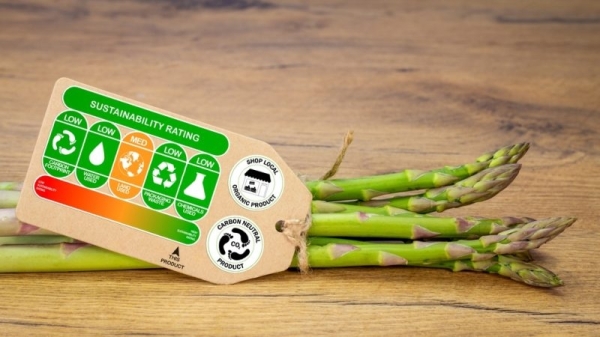Commission: Labelling ‘jungle’ deters consumers from buying green food

Consumers are keen to pick sustainable food products even if they cost more, but are deterred by a lack of trust in the labels meant to mark food as green, according to a leading European Commission official for justice and consumers.
Food labelling has become a hot topic in recent months, ahead of a contentious Commission proposal on front-of-pack food labelling, expected this spring.
The EU executive is also expected to table plans for a ‘substantiating green claims initiative’ in March, which is set to impose penalties on companies making unsubstantiated environmental claims about their products, according to a draft seen by EURACTIV.
Such legislative initiatives are key to creating trust among consumers and encouraging them to choose more sustainable food products even if this means spending more, Nils Behrndt, Deputy Director-General at the Commission’s justice and consumers department, said during a recent EURACTIV event.
“Overall, consumers are very interested in supporting a greener consumption,” he said. In a survey commissioned by the EU executive, he added, 75% of consumers said they would consider buying green products, while 72% said they believe they personally should do more.
But in practice, only 17% of consumers actually go for products carrying green labels, he said.
For Behrndt, the reason behind this is that “only around 50% of consumers trust the claims and labels out there”, pointing out that this number has declined over the last two years.

LEAK: EU to slap penalties on companies making false green claims
EU member states will be in charge of imposing “dissuasive” penalties on companies making unsubstantiated environmental claims about their products under a draft new EU law, seen by EURACTIV.
Making labels trustworthy
For the Commission official, this distrust is fuelled by a “jungle” of different green labels.
“There are lots of good companies, good farmers and good individuals that try to promote sustainable products, but we want to make sure that those who are really doing the job and going green are rewarded and that consumers are not misled by greenwashing,” he said.
Likewise, Green MEP Malte Gallée pointed out that when it became “modern” to call yourself green, “many claims arose that were not substantiated”.
EU organics association IFOAM warned against the “misuse of claims, labels, or communication initiatives about food products” in a statement published on Monday (13 February). Specifically, the organisation called for claims and labels referring to regenerative, local, or ecological agriculture to be better defined and controlled.
In 2022, the Commission tabled proposals for reforming the EU’s Unfair Commercial Practices Directive and Consumer Rights Directive, both geared, among other things, towards strengthening consumer rights and regulating which information companies need to provide.
For example, the proposal on Unfair Commercial Practices contains clearer rules on environmental claims made by companies about their products.
Hurdles in practice
But for Christian Huyghe, scientific director of agriculture at France’s national agriculture and food research institute (INRAE), effectively regulating and monitoring green labels can face significant difficulties in practice.
For one, he argued, assigning an overall sustainability value to a food product is difficult since different aspects, such as biodiversity protection, climate action, or pollution, do not necessarily go together and are sometimes even at odds.
“Environmental labels give the impression that all environmental issues are positively related to each other which is not the case: You may be very good on biodiversity and very bad in terms of carbon balance,” he explained.
Moreover, Huyghe added, offering trustworthy labels that could encourage consumers to pay more for greener products is dependent on effective controls along the value chain. “For imports, this is already basically impossible,” he contended.
For the expert, a first step to tackling this problem could be to make sure all actors along the value chain are involved in the efforts.
“This is very important – otherwise, there is no way to provide citizens and consumers with access to all the information, and there is no way to reward farmers for their good practice,” he concluded.

Solution to food labelling puzzle to be found under Swedish presidency
The European Commission and EU lawmakers will keep putting together all the pieces of the complex front-of-pack food labelling puzzle during the upcoming Swedish EU Council presidency after little progress was reached under the Czech one.



